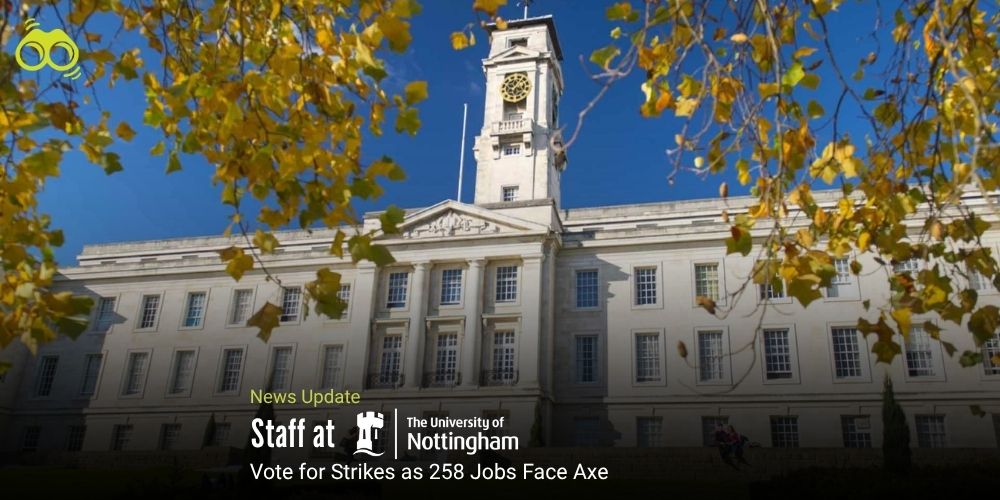University of Nottingham Strike Vote Signals Sector-Wide Discontent
Academic Community Reacts as Nottingham Staff Prepare for Industrial Action
In a development that underscores growing unrest within the UK’s higher education sector, staff at the University of Nottingham have voted in favour of industrial action in response to sweeping restructuring proposals and anticipated job cuts. This follows the university’s announcement in April 2025 of its intention to remove 258 professional services roles from a total workforce of approximately 5,000, alongside the elimination of a further 98 vacant positions. These changes were introduced as part of a 90-day consultation that commenced on 8 April.
According to the University and College Union (UCU), the strike ballot received robust backing, with approximately 72% of participating members voting in favour and a turnout of around 63%. Union representatives described the plans as “drastic”, voicing serious concerns about their potential impact on staff morale, student support services, and day-to-day university operations. In defence of the proposals, the university’s president and vice-chancellor, Professor Jane Norman, cited significant financial pressures facing the sector, including declining revenue, falling international student enrolments, and the rising cost of living.
The UCU has since confirmed it is in the process of finalising strike dates for the next six months. UCU branch president, Lopa Leach, emphasised that industrial action was not undertaken lightly but insisted that the scale of the proposed redundancies left staff with no viable alternative. She warned that any compulsory job losses would trigger strong resistance and called upon university leadership to explore alternative cost-saving measures.
In response, the university maintained that it had been taking steps to reduce costs sustainably. These included widespread budget cuts, removing £40 million from planned spending, and exploring the potential sale of the King’s Meadow Campus. The situation continues to evolve as staff and leadership remain at odds over the path forward.
Editor’s Note:
The vote for industrial action at the University of Nottingham is not an isolated dispute; it is a warning signal for the broader crisis unfolding across the UK's higher education sector. When nearly 72% of union members declare their intent to strike, the message is clear: the foundations of our academic institutions are under strain, and urgent reflection is needed. The proposed loss of 258 roles, alongside 98 unfilled positions, cannot be dismissed as administrative reshuffling. These roles represent the backbone of the university experience: library staff, IT support, and student services professionals whose work quietly sustains academic excellence. Their absence will not go unnoticed; it will be felt in every lecture hall, library, and support centre. Indeed, the financial pressures are undeniable: declining international enrollments, stagnant tuition fees, and mounting expenditures. However, the solution cannot solely rely on austerity measures. Genuine sustainability necessitates inclusive discourse, strategic planning, and an acknowledgement that individuals, not merely financial statements, constitute the essence of higher education.
As per Skoobuzz, to safeguard higher education as a public benefit, it is imperative to commence by recognising the contributions of those who facilitate its existence.














0 Comments (Please Login To Continue)